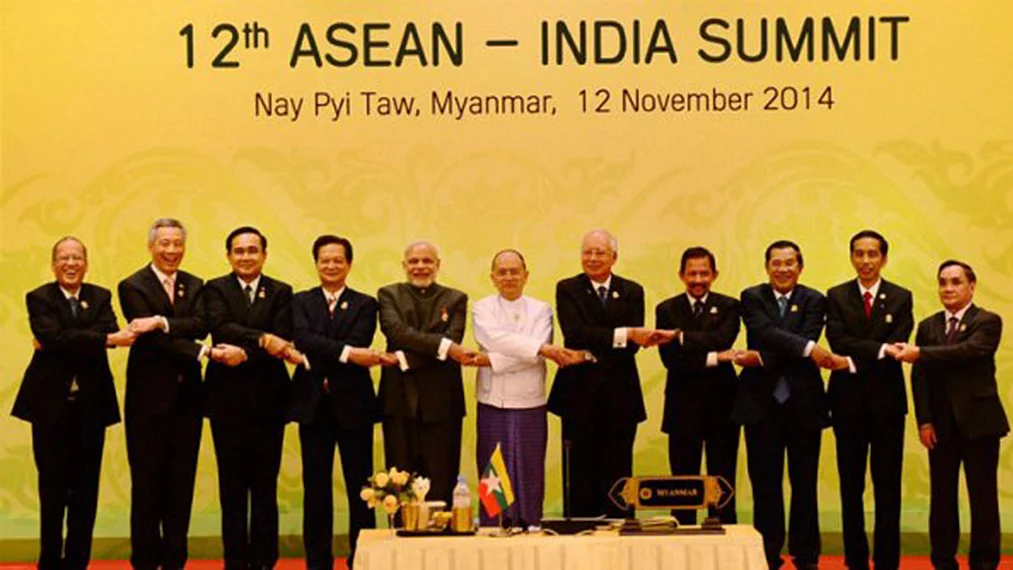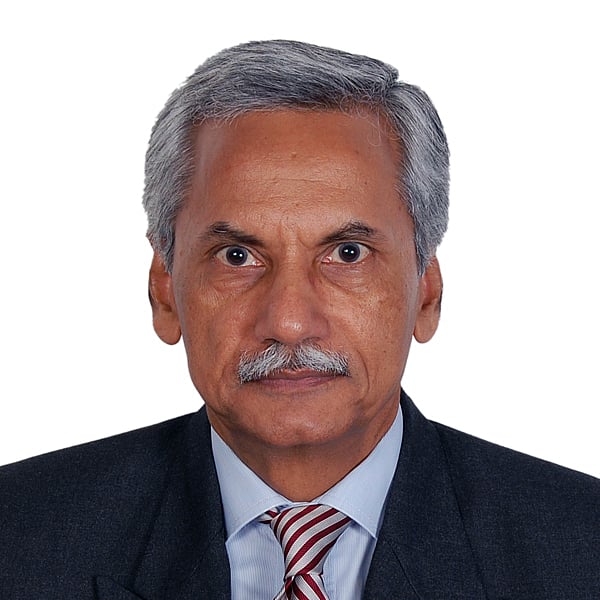India important for ASEAN to balance China, but trade deficit concerning: India’s former envoy
“The fact that all ten ASEAN leaders would be present as guests of honour at this year’s Republic Day parade is an acknowledgement on their part of the significance of India in their foreign policy.”

As China flexes its muscle in Asia, ASEAN (Association of South East Asian Nations) - the 10-nation-bloc in South-East Asia - has never been more important to India. The bilateral relationship, which started out driven mainly by economic concerns in the early 1990s when India was staring at bankruptcy, is finally coming of age with an increasingly significant defence cooperation.
With leaders of all ten ASEAN member states set to be present as guests of honour at this year’s Republic Day parade, there seems to be an acknowledgement on both sides of each other’s importance.
A commemorative summit to be held on Jan 25, to mark 25 years of bilateral relations, will focus on security and trade, besides taking stock of progress on the India-Myanmar-Thailand trilateral highway. The connectivity initiative, set for a 2020 completion, is being seen as a potential gamechanger in South-East Asia.
NH on Sunday spoke to India’s former envoy to the Philippines, Yogendra Kumar, on the dynamics of the burgeoning bilateral ties between India and its South-East Asian neighbours.

Edited excerpts from the interview:
Q. How important is the role of ASEAN in India’s Look East Policy?
A. The Look East Policy concerns the entire eastern world, starting from India’s eastern borders. It is a very comprehensive foreign policy outlook on part of the Indian leadership. The Look East Policy came to life after the end of Cold War in the 1990s. Now, ASEAN is central to India’s Look East policy, both in terms of economic relations and it constituting a security architecture for the region. Successive Indian leaderships, from the time of Narasimha Rao government to the present government, have tried to forge close ties with ASEAN.
Q. How important is economic cooperation between India and ASEAN at present, when there are proposals to increase the defence cooperation to counter an assertive China?
A. The bilateral relationship between India and ASEAN, as indeed with any other country or group of countries, cannot be purely economic, though it may have started out being driven by economic interests. But even the decision to establish close economic ties was motivated by geopolitical considerations. When India was at the brink of bankruptcy in 1991 after the Soviet Union collapsed, the Indian leadership wasn’t sure about the kind of relationship it would be having with the US. It was a big event that had radically altered the global power structure. At that crucial juncture, India started building its relationship with many countries, with ASEAN being the first bloc among them. Later, we opened to South Korea, Japan, China and other countries.
Another historic fact is that ASEAN countries have always been apprehensive about Communism creeping into the region. So, ASEAN began as an effort on part of Singapore, Malaysia, Indonesia and the Philippines, who came together on the premise that establishing closer economic ties would result in increased security. Then, they decided to take the cooperation a step ahead by involving other countries in the region. In a way, even ASEAN reached out to India. One could say that interests of both the countries converged on economic and geopolitical considerations.
India-ASEAN did start out driven by economics. At the time, China wasn’t present physically in as big a way as it is present in the region now. But the ASEAN side did anticipate China’s rise early on, since China was also opening up its economy to the outside world. There was also a realisation among major ASEAN states that India could serve as a counterweight to a Communist China.
One can say that defence is an increasingly important component in India-ASEAN relations, but economic cooperation is always going to be crucial.
Q. So, how significant is economic and defence cooperation with India for ASEAN?
A. With some ASEAN member states having maritime disputes with China over Paracel and Spratly Islands in the South China Sea, there is a growing consensus that they should diversify relations with other countries. India is very much part of that evolving strategy. There is the US rebalance to Asia policy whilst, at the same time, the bilateral relations between ASEAN and India, Japan and South Korea have gained more importance.
We must note that ASEAN has strong trade relations with China, much bigger than they have with Japan, South Korea or India. But no country wants to be overly dependent on one a single power. So, we have seen that trade between India and ASEAN have more doubled since the start of the Look East Policy. India also offers a big market for ASEAN goods. Then there is also an increasing cultural interaction and people-to-people contacts.
So, ASEAN first grew into ASEAN+3, involving China, Japan and South Korea and then came the East Asia Summit forum, where countries like India, Australia and New Zealand also joined in addition followed by US and Russia. The ASEAN Defence Ministers Meeting Plus, comprising ASEAN countries and other members of the East Asia Summit, was another step in the evolution of framework for the ASEAN states to manage relations with other countries.
Q. What would you say about the growing trade deficit between India and ASEAN?
A. That is a serious concern. We can’t let the trade deficit grow to a level where bilateral economic relationship becomes unsustainable. Having said that, once the FTA in services and investment comes into effect, a lot of these things will balance out. We are strong in both the areas.
We already have an FTA in goods. The FTA in investments and services will, hopefully, soon be ratified (it has already been signed). Then, the Regional Comprehensive Economic Partnership (RCEP), which is a common FTA involving all of ASEAN’s FTA partners, is on the path to be finalised.
In today’s context, we can’t look at deficit only in terms of goods exchanged but need to look at the overall balance including services and investment.
Q. How has India’s Look East Policy changed under the Modi government?
A. While the Look East Policy was conceived under the leadership of Narasimha Rao and largely followed by successive leaderships, there is a degree of robustness being imparted to this policy under the present government. Be it the line of credits extended by the India to certain member states, or facilitation for investment, the bilateral relationship has extended quite considerably. There is also a defence component to the relationship now. India is an active partner in the ASEAN Defence Ministers’ Forum. It also has defence cooperation with many member countries of ASEAN.
So, there is a defence component today, there is an intelligence sharing component and there is also the connectivity corridor component. For instance, the Indian government helped with funding support when the Philippine city of Marawi was taken over by terrorists from Abu Sayyaf. India also planning to chip in with economic help during the rebuilding of the city after the terrorists were driven out.
Also, the concept of ‘Indo-Pacific’ that is developing further signifies India’s growing interest in the region helped undoubtedly by our relations with ASEAN as an organisation and its individual member countries. ASEAN countries are not engaged with this consultation process involving India, US, Japan and Australia even as it offers an alternate vision for the 'Indo-Pacific' regional order which is equitable, open and inclusive with freedom of navigation and economic cooperation based on connectivity and growth corridors across this entire region.
The fact the heads of ASEAN states will be at this year’s Republic Day parade as guests of honour is an acknowledgement on part of ASEAN that they see in India important partner.
Follow us on: Facebook, Twitter, Google News, Instagram
Join our official telegram channel (@nationalherald) and stay updated with the latest headlines
